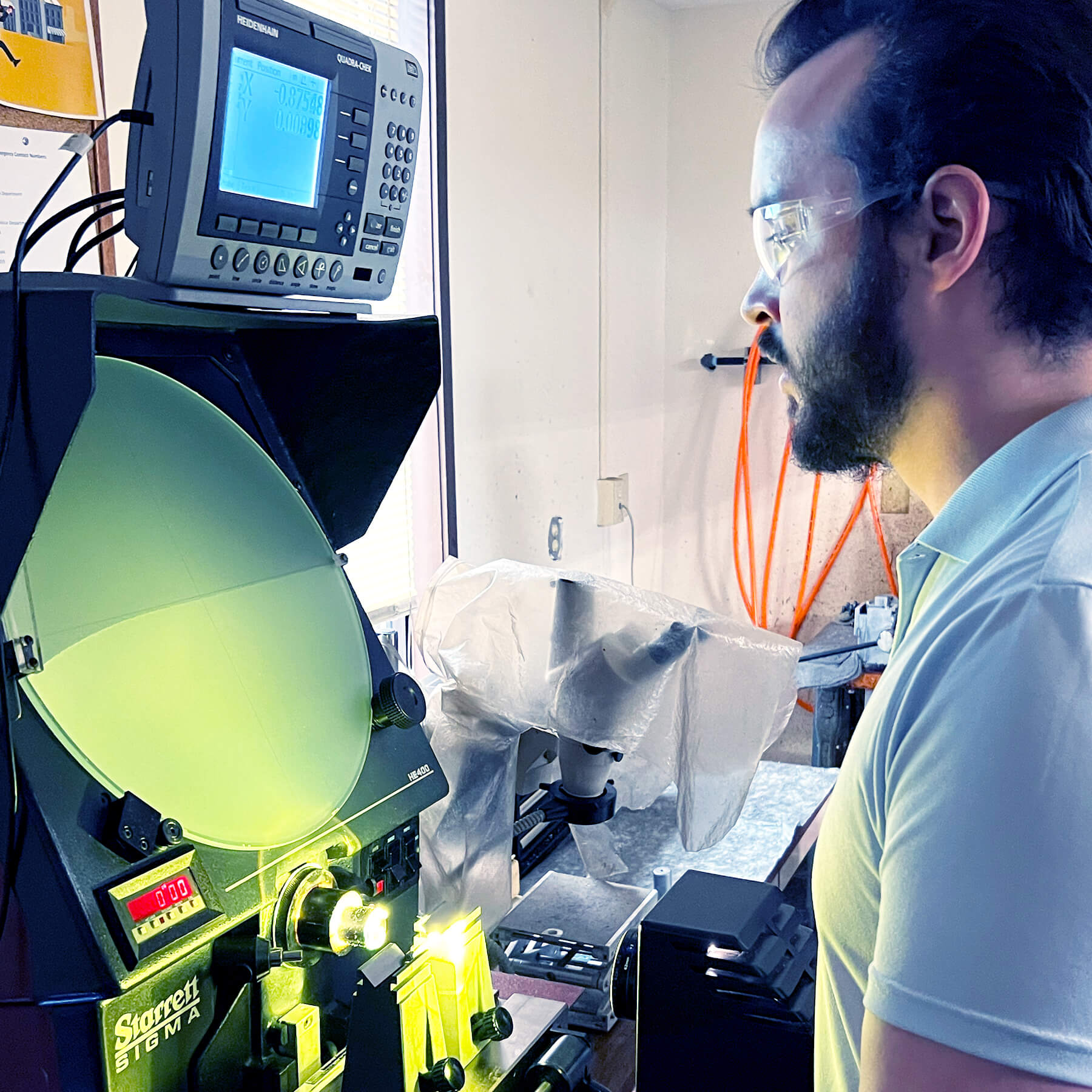About Jet Engines
Jet engines are constructed of the most advanced forgings, titanium alloys, nickel and cobalt superalloys, and advanced composites. For example, most jet engine turbine blades today are made of single-crystal alloys, which have greater strength and can operate at higher temperatures than conventional alloys.
These blades are usually hollow and are made by investment casting. When characterizing single-crystal parts, it is critical to establish that the material is a single crystal, then use nondestructive testing techniques to ensure that the casting has no defects.
Many jet engine parts are protected by thermal spray powder coatings to enable higher operating temperatures and to reduce wear. The coatings are analyzed for thickness, porosity, adherence, and other characteristics. Other parts are strengthened by heat treating, and these components are analyzed for physical properties including hardness, strength, and microstructure, which is particularly crucial for components like pre-sintered preforms (PSPs) attached through metal brazing.
Carbon/carbon composites are being applied in an increasing number of aerospace applications because of their low weight, high strength, and high operating temperatures. However, these complex materials require close process control to prevent delamination, voids, and other flaws.
Composites are tested for the same properties of strength, hardness, shear, flexure, fracture toughness, and fatigue as conventional materials but our experienced team modifies these tests to match the structures of the many varieties of composites found on today’s aircraft.
Learn how NSL Analytical supports innovation by testing powder metal feed stock, prototype designs and final product in the Additive Manufacturing & 3D Printing Industry.



